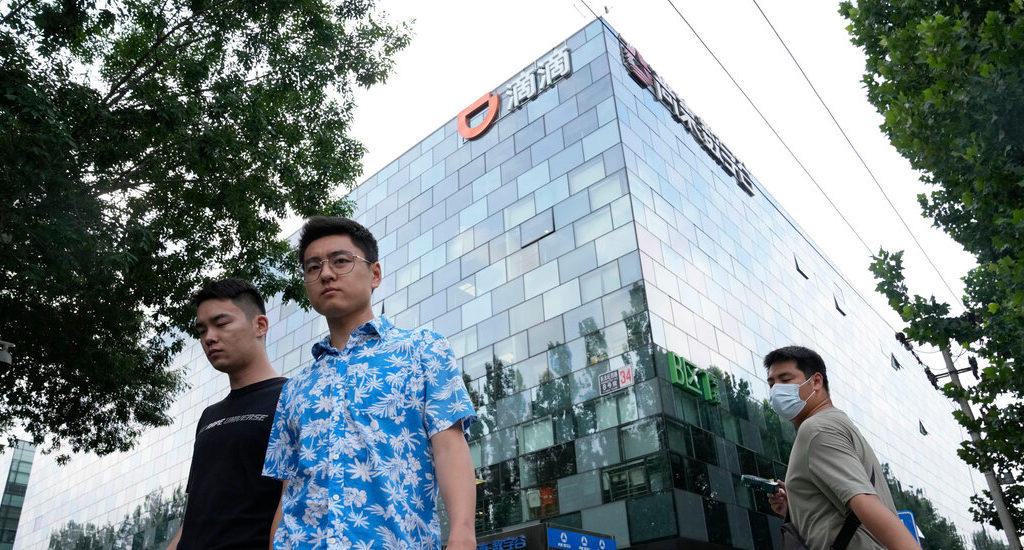The abrupt turn after just six months is likely to anger investors, who bid up the price of the company this summer when it listed.
In a statement in China, Didi said its board had authorized beginning the process of delisting from the New York Stock Exchange.
Beijing’s top leaders are also moving to assert greater control over Didi and the private technology sector.
Promises to use its banks of data to unsnarl traffic and develop driverless car technologies made its executives icons as Chinese officials called for building a more innovative economy.
The delisting is likely to increase investor concerns about what seems to be a growing hostility by Chinese officials toward domestic companies that list shares on overseas exchanges.
Like Didi, Ant had gone ahead with a share listing despite a history of regulatory concerns.
A listing on Wall Street, such as Alibaba’s record-breaking one in 2014, was once seen in China as an ultimate validation of a company’s business achievements.
Worried that the listing meant Didi might transfer sensitive data on Chinese riders to the United States, regulators forced the company to halt registering new users two days after the I.P.O.
Shortly after, officials ordered a halt to downloads of Didi’s main, consumer-facing application, before broadening the block to 25 more of the company’s apps, including its car-pooling app, its finance app and its app for corporate customers.
Even before its listing, Didi was hard pressed to avoid regulatory scrutiny.
A month later, Didi was among three dozen Chinese internet firms that regulators ordered to obey antimonopoly rules.
